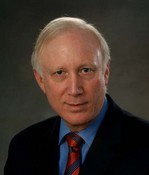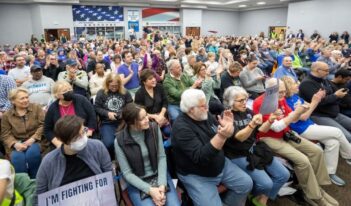
New practice of releasing drafts of proposed actions enhances the public’s understanding of agency actions.
On Thursday, the Federal Communications Commission (FCC) will consider whether to repeal regulations adopted in 2015 by the Obama Administration’s FCC that imposed public utility-style mandates on Internet service providers. I happen to think the FCC should repeal the 2015 regulations, but this piece is not about the merits of the heated “net neutrality” controversy over those utility-like mandates.
Rather, it is about a process issue that, surprisingly, has attracted little attention from administrative law scholars: the new practice at the FCC of releasing to the public, prior to Commission meetings, drafts of the proposed actions the commissioners will consider at their meetings.
The FCC will be voting Thursday on its repeal proposal at a so-called Sunshine meeting, a meeting open to the public as required by the 1976 Government in the Sunshine Act. Yet until earlier this year, the drafts of the items upon which the agency’s five commissioners were voting would generally not be released to the public. In other words, prior to the newly reconstituted FCC under the Trump Administration, the public has been more or less in the dark at the Sunshine meeting about the details of proposed action before the commissioners.
I say “more or less” because, to be sure, once the draft orders were circulated by the chairman to the other commissioners three weeks in advance of the Sunshine meeting, it was not uncommon for there to be leaks concerning selective aspects of the proposed draft text. And often the agency’s chairman would publish a blog purporting to summarize key points in the draft item, or even release a “fact sheet” purporting to recite the key elements. Of course, the leaks, blogs, and fact sheets were susceptible to spin.
A principal rationale offered historically for not publicly releasing draft texts was that such releases might interfere with the commissioners’ deliberative process. The theory was that late lobbying for changes might make it less likely that the commissioners—or their staffs—would be able to consider thoughtfully their own positions or to engage in deliberations with their fellow commissioners.
Now, I have a long record—including chairing a special committee of the Administrative Conference of the United States (ACUS) that proposed Sunshine Act reforms—of supporting changes to the Sunshine Act that would allow a majority of the commissioners, under certain circumstances, to deliberate among themselves in private and then to summarize such meetings for the public record. I still favor changes to the law, even if limited to a trial basis, as a way to foster greater collegiality and collaboration among commissioners and, thereby, to improve the quality of agency decisions.
Nevertheless, given the Sunshine Act as it stands, not releasing the draft text on which the agency’s commissioners are voting runs against fundamental notions of transparency and openness upon which the law supposedly rests. Of course, the draft text might be changed before the vote, perhaps even in material ways. Indeed, in a longstanding practice, FCC chairs routinely grant the staff “editorial privileges” before each vote. So, even after the vote, the item’s language might be changed before the official text is released to the public, sometimes a week or more later. At least if the draft text has been made public in advance of the Sunshine meeting, members of the public will know which changes were made when the official text is released.
It is worth taking note of ACUS recommendations on the Government in the Sunshine Act, adopted in 2014, which are intended to highlight a number of “best practices” undertaken by agencies covered by the Sunshine Act. One of ACUS’s recommendations is especially relevant:
For open meetings, covered agencies should post a meeting agenda on their websites as far in advance of the meeting as possible. Except for documents that may be exempt from disclosure under the Freedom of Information Act, agencies should also post in advance all documents to be considered during the meeting.
The research report accompanying the ACUS recommendations states that many independent agency officials pointed to the electronic posting of agency documents relevant to open meetings as worthwhile. With respect to matters to be considered at a Sunshine meeting, the report states:
Documents that agencies post in connection with open meetings include the following: meeting notices (including Federal Register notices announcing upcoming meetings), press releases, meeting agendas, staff memoranda to be considered at meetings, meeting transcripts and/or minutes, public comments received by the agency, and background documents needed to comprehend the meeting discussions.
Shortly after President Donald Trump appointed him FCC Chairman in January, Ajit Pai announced that, on a trial basis, he would begin releasing the draft items to the public at the same time he circulated them to his fellow commissioners. Then, a few months ago, he announced he was making the change permanent because none of the supposed ill effects from public disclosure had materialized.
In Commissioner Michael O’Rielly’s view, the ability to talk in specifics about a proposed item increases the usefulness of exchanges with the public and produces more informed decisions. Indeed, although the agency’s Republican and Democratic commissioners are deeply divided on the merits of “net neutrality” and many other substantive communications policy issues, they appear to agree that the new practice Pai instituted is worthwhile.
It was not that long ago that the idea of releasing draft texts on which the FCC commissioners would be voting was characterized by many as radical. But think about it. What is so radical about increasing transparency and disclosure to enhance the public’s ability to understand what is taking place at a Sunshine meeting?




